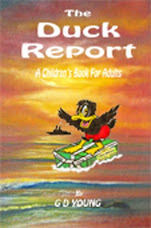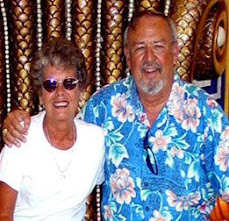When you get in the cop business one of the first things you have to master is how to talk on the radio. Then most agencies used the universal 10 Codes, later popular on the CB bands. The police version was longer and had some additions.
With the 10 Codes, there were the Signals. Basically, 10-Codes described actions: 10-4 (OK, Will Do). Signals described things. Signal-20 (Mentally ill person). The codes were used so often they were usually mastered in just a few days. But not always.
My favorite dispatcher, Sandy, one day received an alarming call from the Chief. "I'll be Signal-7 at the Pier," he said. This meant literally that he would be a dead person at the pier. There was cause for alarm. The Chief was a retired Army office who was in way over his head. He had dermatitis from stress, was buzzed from noon on, and acted irrationally most of the time. Was he sending some code that he'd been kidnapped? Was he going to kill himself? Or, after all these months did he still not know the codes. A officer sent by Sandy to check found it was the latter.
And he never did learn them. Each evening, when he went home, he checked out with, "I'll be Signal 7 (dead)." Not 10-7 (out of service). Then invariably, shortly thereafter would come a transmission from an anonymous patrol car, "Yeah, Signal 7 from the neck up."
Another thing that rookies had to learn was how to read the master index cards. We were computer-less and personal records were kept on 3 by 5 index cards. When a cop on patrol called in a 10-28 or 10-29 asking for a verification of person's identity, the dispatcher searched the files, located the card, and read back the requested information.
This wasn't always easy. Much like the texting shorthand of today, there were contractions and codes used to save space on the cards. A very young Byron Tomlinson, who later became one of the NPD's and CCSO's best officers got tripped up on these one night. When asked for a info on a Wilson, Byron replied "Ronly Oonly Wilson."
It took a minute for the requesting cop, and everyone else who was listening, to figure out what Byron had done. Then the laughter broke out. He didn't know that initials were indicated as initial, then (only). So, R(only) O(only) became Ronly Oonly. A name he had to live with for some time.
With the 10 Codes, there were the Signals. Basically, 10-Codes described actions: 10-4 (OK, Will Do). Signals described things. Signal-20 (Mentally ill person). The codes were used so often they were usually mastered in just a few days. But not always.
My favorite dispatcher, Sandy, one day received an alarming call from the Chief. "I'll be Signal-7 at the Pier," he said. This meant literally that he would be a dead person at the pier. There was cause for alarm. The Chief was a retired Army office who was in way over his head. He had dermatitis from stress, was buzzed from noon on, and acted irrationally most of the time. Was he sending some code that he'd been kidnapped? Was he going to kill himself? Or, after all these months did he still not know the codes. A officer sent by Sandy to check found it was the latter.
And he never did learn them. Each evening, when he went home, he checked out with, "I'll be Signal 7 (dead)." Not 10-7 (out of service). Then invariably, shortly thereafter would come a transmission from an anonymous patrol car, "Yeah, Signal 7 from the neck up."
Another thing that rookies had to learn was how to read the master index cards. We were computer-less and personal records were kept on 3 by 5 index cards. When a cop on patrol called in a 10-28 or 10-29 asking for a verification of person's identity, the dispatcher searched the files, located the card, and read back the requested information.
This wasn't always easy. Much like the texting shorthand of today, there were contractions and codes used to save space on the cards. A very young Byron Tomlinson, who later became one of the NPD's and CCSO's best officers got tripped up on these one night. When asked for a info on a Wilson, Byron replied "Ronly Oonly Wilson."
It took a minute for the requesting cop, and everyone else who was listening, to figure out what Byron had done. Then the laughter broke out. He didn't know that initials were indicated as initial, then (only). So, R(only) O(only) became Ronly Oonly. A name he had to live with for some time.






No comments:
Post a Comment